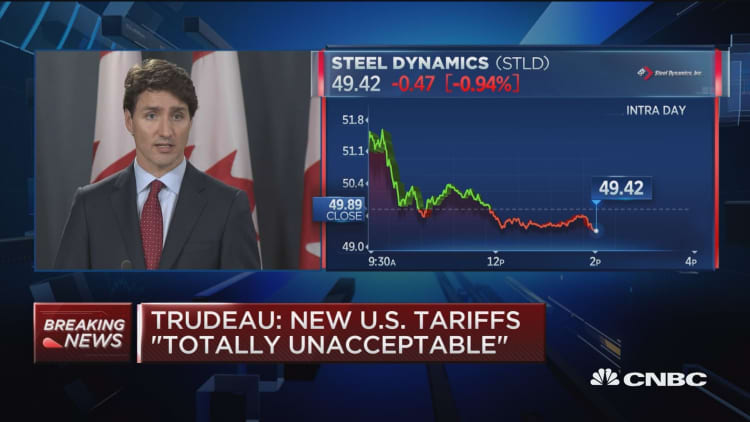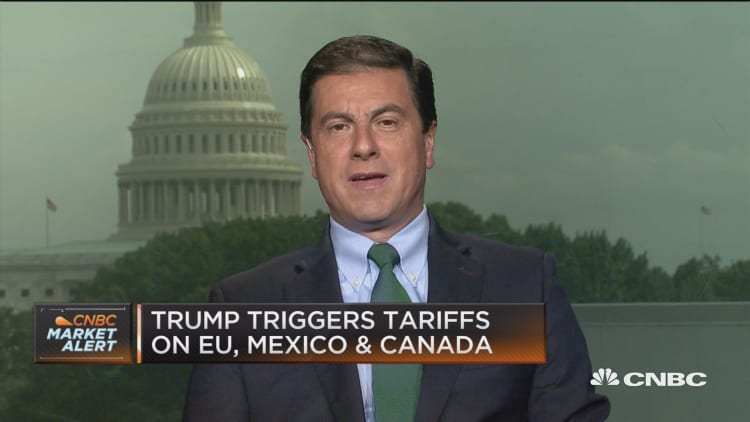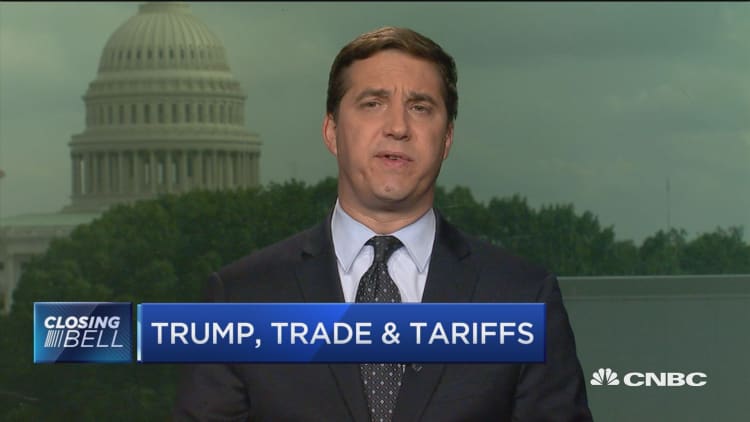The U.S. military could be caught in the crosshairs following President Donald Trump's move to slap tariffs on some of the nation's closest allies.
The Trump administration imposed new duties on steel and aluminum imports from the European Union, Canada and Mexico on Thursday citing national security concerns.
The tariffs of 25 percent on steel imports and 10 percent on aluminum imports are slated to take effect at midnight Thursday despite Secretary of Defense James Mattis' recommendation of targeted tariffs.
Stephen Biddle, adjunct senior fellow for defense policy at the Council on Foreign Relations, argues that the fresh round of tariffs will undermine America's ability to leverage allies to support U.S. interests.

"The U.S. grand strategy for multiple generations has been premised on the idea that we are going to collaborate with rich and powerful allies that our enemy doesn't have and that this will advance American national security in a variety of ways," Biddle said. "The allies in question are precisely the ones that we are now engaged in these trade disputes with."
In a Department of Defense memo related to the proposed tariffs, Mattis said that while the Pentagon "concurs with the Department of Commerce's conclusion that imports of foreign steel and aluminum based on unfair trading practices impair the national security," the U.S. military requirements for steel and aluminum each only represent about 3 percent of U.S. production.
Mattis cited concerns about the "negative impact on our key allies" and said that therefore "targeted tariffs are more preferable than a global quota or global tariff."
Speaking from the Pentagon on Thursday, chief spokeswoman Dana White said the department has yet to evaluate the policy. "As that just came out, we just need some time to take a look at it," White said.
Meanwhile, the European Union, Canada and Mexico have announced plans to target a variety of U.S. products with equivalent measures.

What's more, the Trump administration will also place quotas on other countries, such as South Korea, Argentina, Australia and Brazil, instead of tariffs.
"This is clearly bad for our allies and partners," said Andrew Hunter, director of the Defense-Industrial Initiatives Group at the Center for Strategic and International Studies.
"It's kind of a perverse dynamic that we end up targeting our partners and allies who aren't actually driving the overcapacity that is hurting the U.S. industry, but they are the ones that are going to pay these tariffs," Hunter said.
Biddle, who is also a professor of international and public affairs at Columbia University, noted that America's allies will "re-evaluate how trustworthy the United States is as a partner on all sorts of things."
"If the United States is willing to exploit a loophole in a trade negotiation," Biddle said, "what's to say the United States wouldn't find some legalistic excuse for not acting in some other way our allies need us to act on?"
Similarly, Remy Nathan, vice president for international affairs at the Aerospace Industries Association, told CNBC in a prior interview that "oftentimes trade is political and security cooperation is political and the two intertwine."
"When we are enjoying good trade relations with other countries we have positive foreign relations, positive security cooperation, and they are oftentimes more interested in purchasing U.S. defense equipment and working with our military," Nathan said. "The opposite is also true."
WATCH: EU tariffs meant to send signal to China



